All content on this site is intended for healthcare professionals only. By acknowledging this message and accessing the information on this website you are confirming that you are a Healthcare Professional. If you are a patient or carer, please visit the Lymphoma Coalition.
The lym Hub website uses a third-party service provided by Google that dynamically translates web content. Translations are machine generated, so may not be an exact or complete translation, and the lym Hub cannot guarantee the accuracy of translated content. The lym and its employees will not be liable for any direct, indirect, or consequential damages (even if foreseeable) resulting from use of the Google Translate feature. For further support with Google Translate, visit Google Translate Help.
The Lymphoma & CLL Hub is an independent medical education platform, sponsored by AbbVie, BeOne Medicines, Johnson & Johnson, Roche and sobi, and supported through educational grants from Bristol Myers Squibb, Incyte and Lilly. View funders.
Now you can support HCPs in making informed decisions for their patients
Your contribution helps us continuously deliver expertly curated content to HCPs worldwide. You will also have the opportunity to make a content suggestion for consideration and receive updates on the impact contributions are making to our content.
Find out more
Create an account and access these new features:
Bookmark content to read later
Select your specific areas of interest
View lymphoma & CLL content recommended for you
EHA-SWG 2017 | Rare Lymphomas: MALT lymphomas
On March 10–12 2017, the EHA-SWG meeting on Rare Lymphomas took place in Barcelona, Spain, and was jointly chaired by Prof. Martin Dreyling, from Klinikum der Universität München, Germany, and Prof. Marie-José Kersten, from the Academic Medical Center, Amsterdam, The Netherlands.
On March 11th 2017, Catherine Thieblemont, from Hôpital Saint-Louis, Paris, France, gave a talk on MALT Lymphomas during the “MALT Lymphomas and HCL” scientific session.
The talk began by explaining that Mucosae Associated Lymphoid Tissue (MALT) Lymphomas are Marginal Zone Lymphomas (MZLs) of extranodal sites. They occur in a wide range of sites:
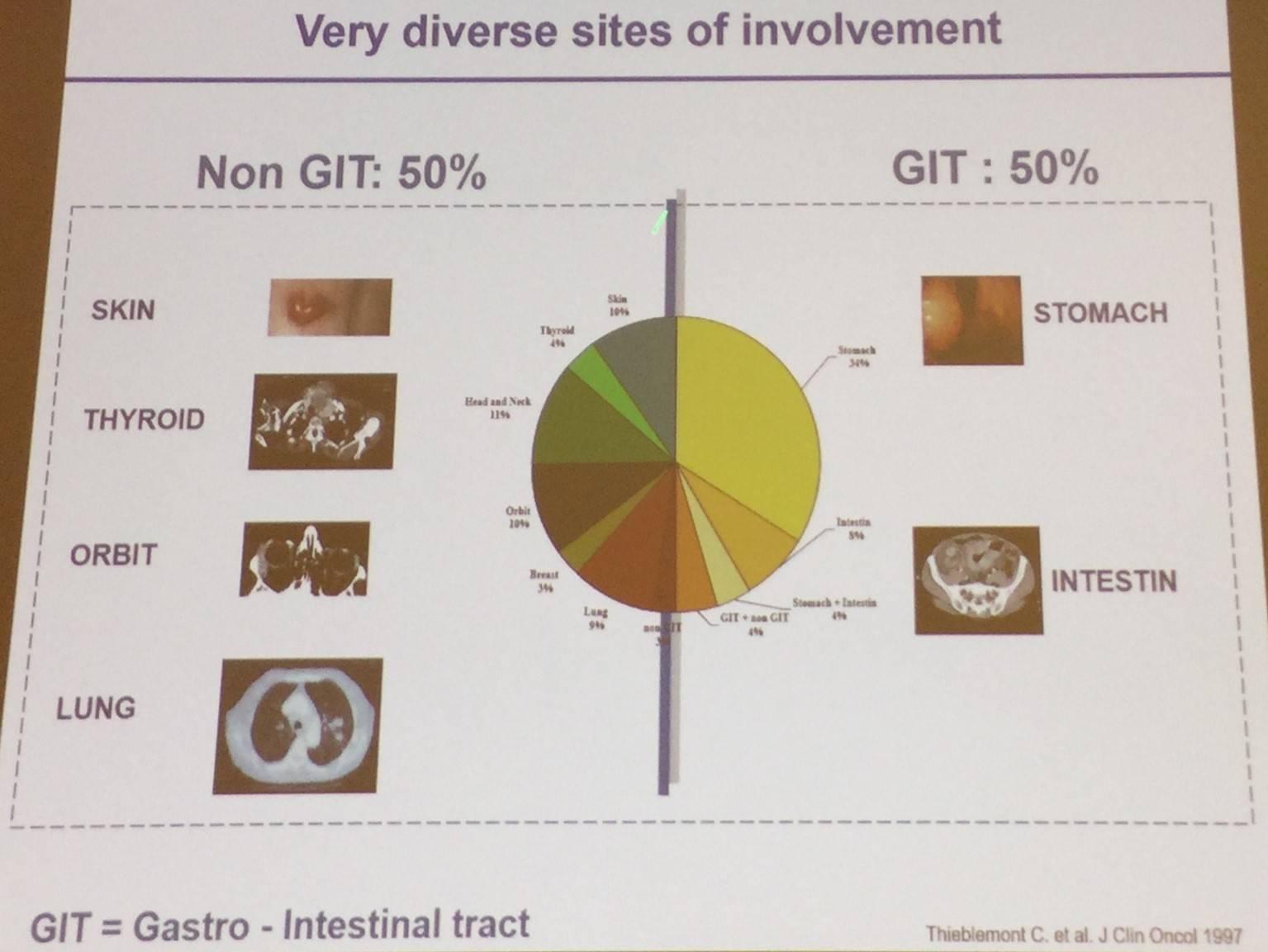
MALT lymphoma is a rare disease: in all adults MZLs make up around 17% of NHLs, with MALT Lymphomas making up 7% of those. In elderly patients, over the age of 80 years, MZLs make up 30% of NHLs with MALT lymphomas making up 2% of those.
MALT lymphomas are associated with chronic antigenic stimulation, either by infection or auto-antigens:
|
Site |
Stimulant |
|---|---|
|
Stomach |
Helicobacter pylori |
|
Intestine |
Campylobacter jejuni |
|
Ocular adnexa |
Chlamydia psittaci |
|
Thyroid |
Hashimoto thyroiditis |
|
Salivary gland |
Sjögren syndrome |
|
Lung pneumopathy |
Lymphoid interstitial |
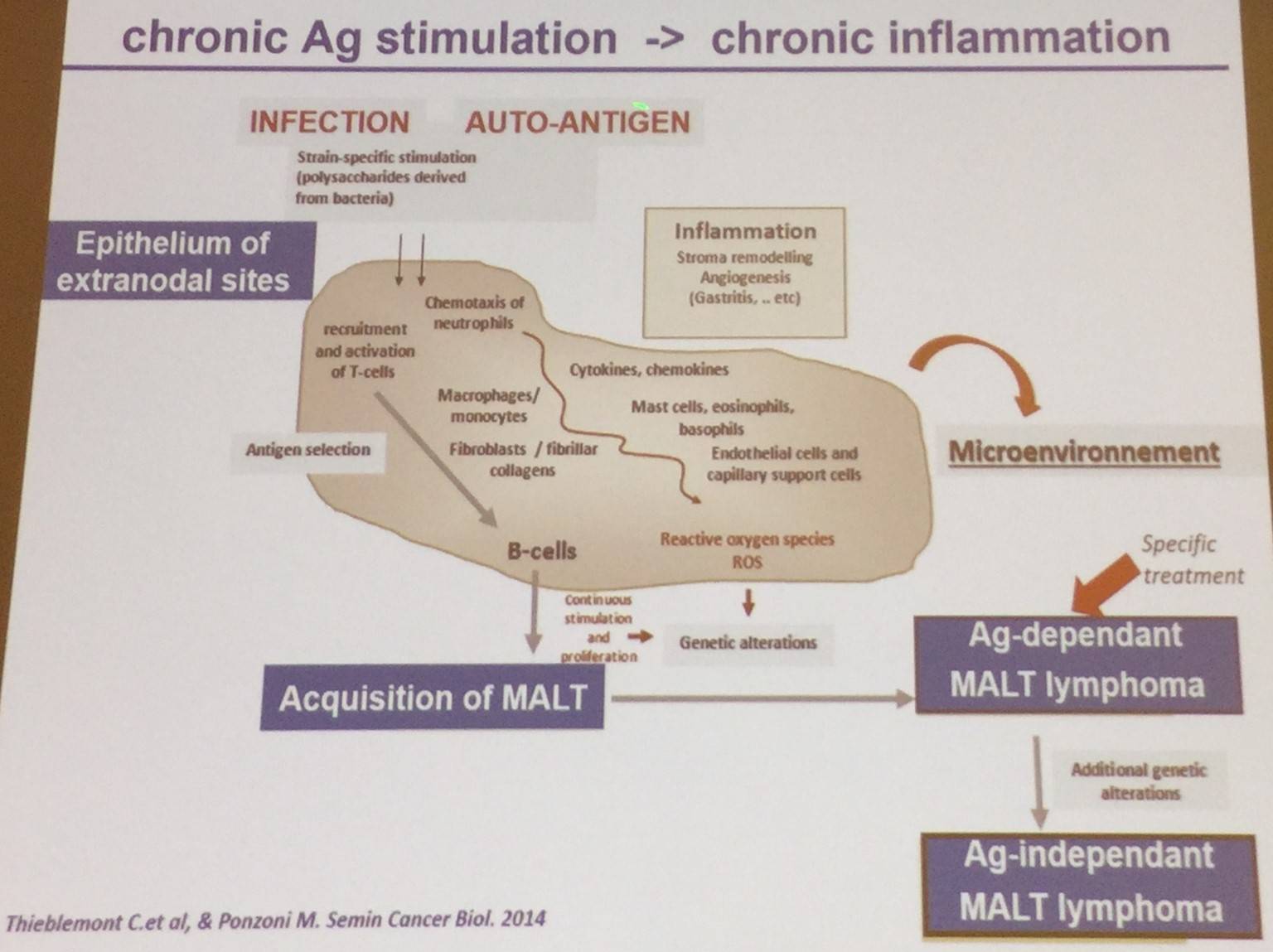
Catherine Thieblemont then presented the genetic alterations which occur in MALT lymphoma:
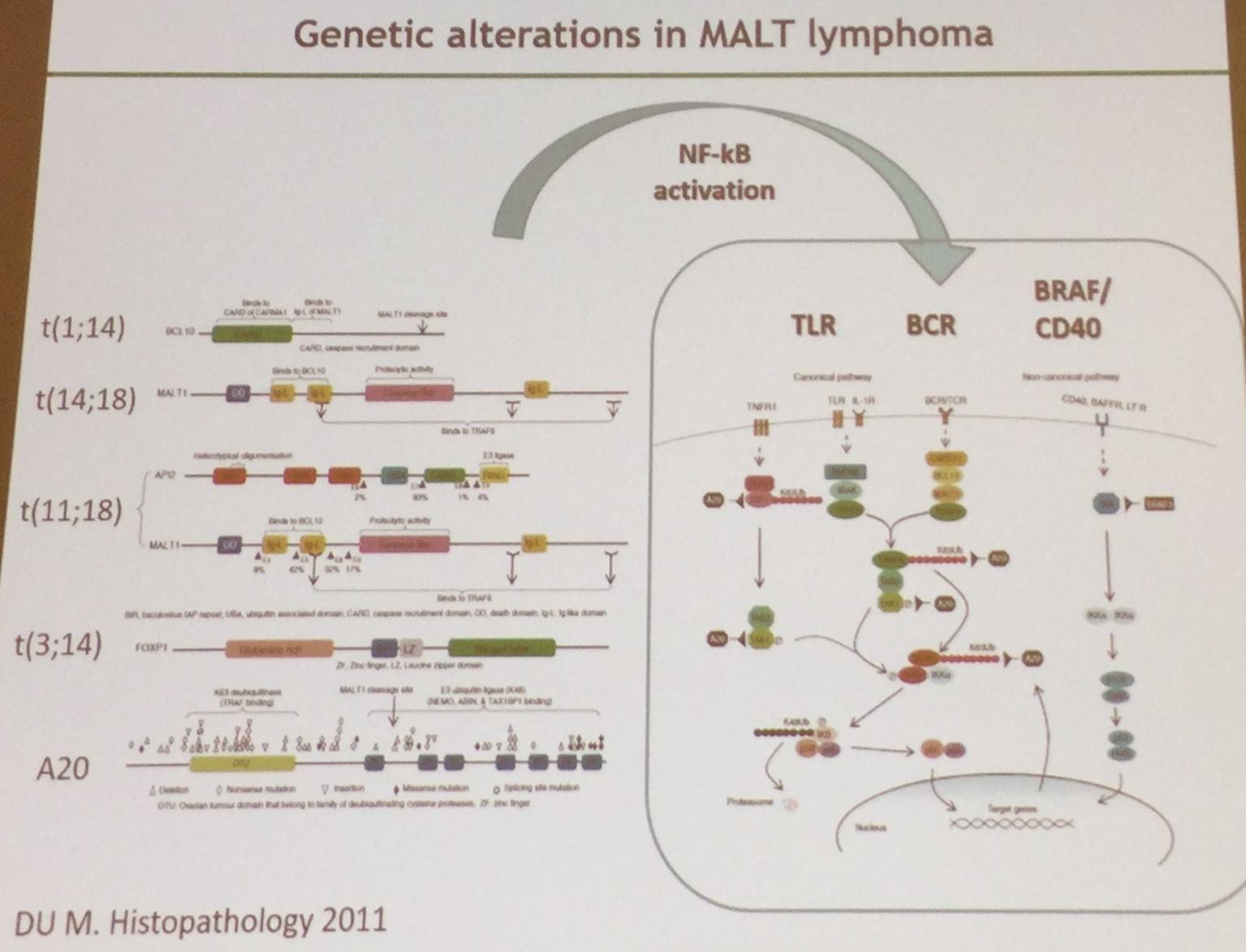
The talk then focused on diagnosis of MZL, which requires a biopsy of the extranodal site, and how to distinguish MZL from other B-Cell Lymphomas.
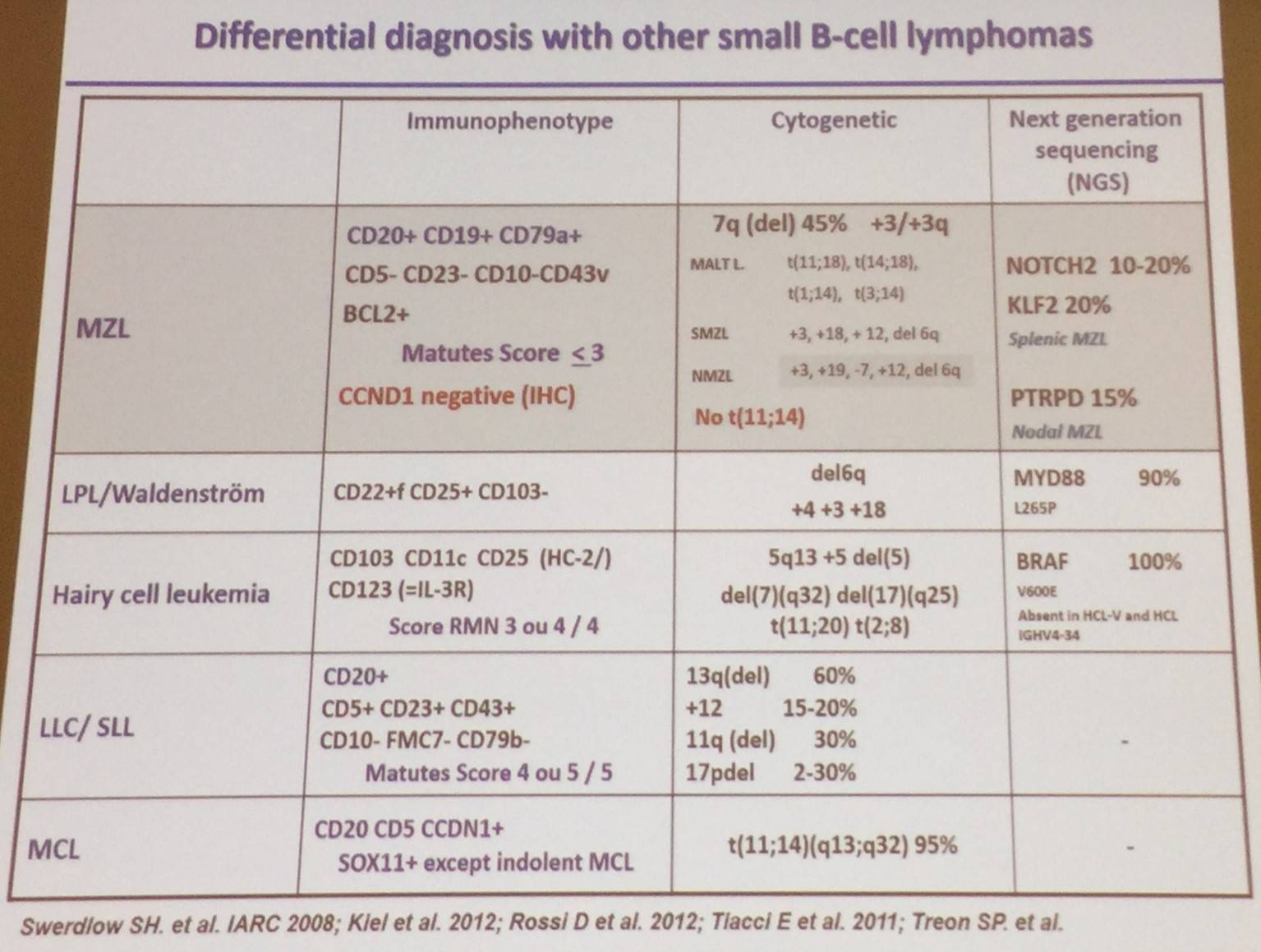
It was stressed that in gastric MALT lymphoma, it is mandatory to evaluate for H. pylori; histochemical examination (Genta stain or Warthin-Starry stain of antral biopsy specimen) is required and serology studies if histology is negative. An overview of staging for MALT lymphoma was also presented:
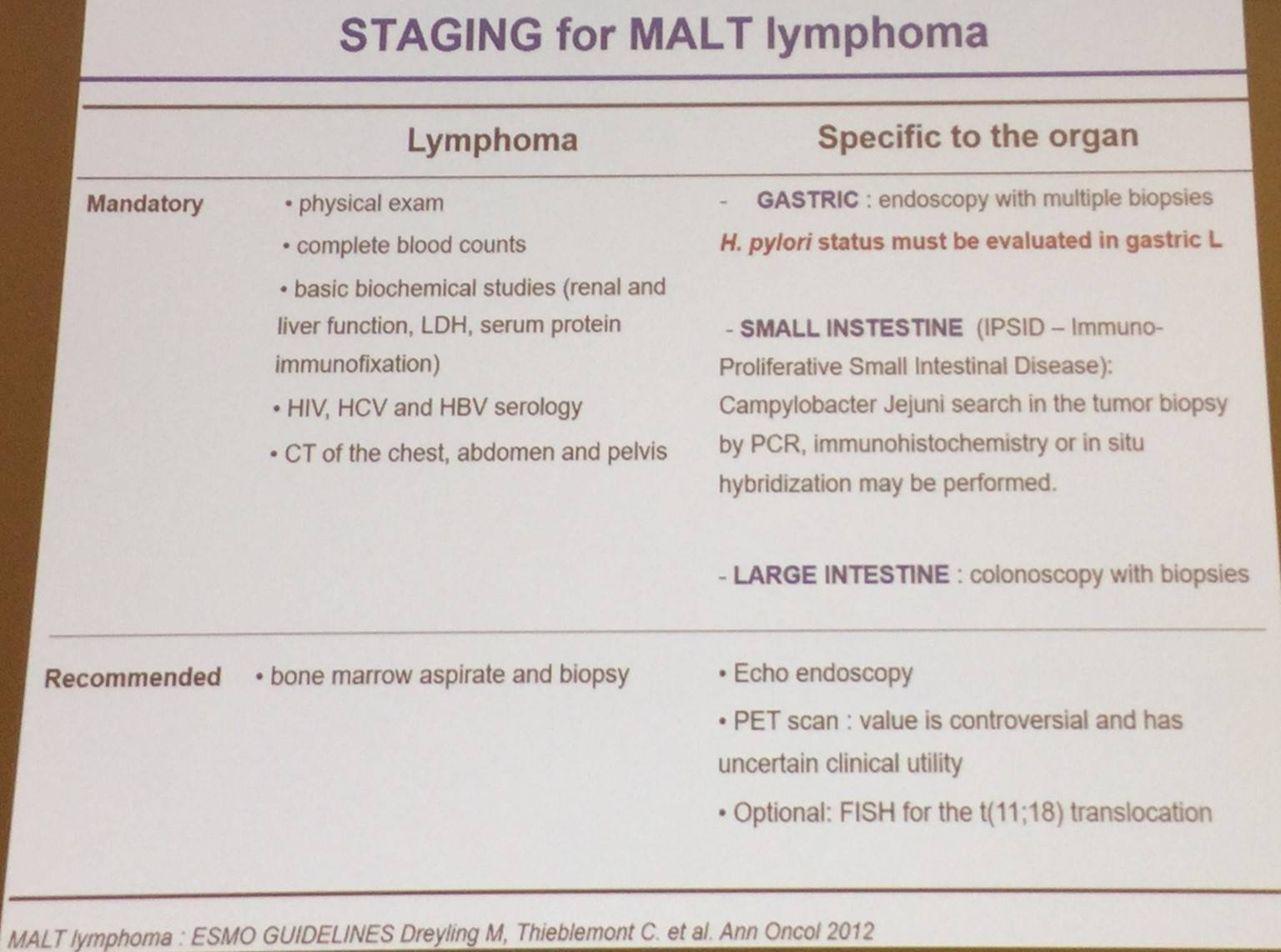
Catherine Thieblemont then began to discuss treatment for MALT lymphomas. Currently, there is no standard of therapy. Options currently available include:
- Watch and wait
- Local therapy: radiotherapy in MALT lymphoma
- Rituximab monotherapy
- Rituximab plus chemotherapy: e.g. R-chlorambucil, R-bendamustine
- So far, only one randomized trial in MALT lymphoma has been reported (Zucca et al. J Clin Oncol) which compared rituximab alone, R-chlorambucil, and chlorambucil alone
- Cladribine has been reported to achieve 100% ORR (84% CR) with a higher CR rate in gastric compared to extra-gastric (important hematologic toxicity grade and increased risk of secondary MDS)
- Chlorambucil, mitoxantrone and prednisone (MCP), fludarabine plus mitoxantrone, and classic CVP are active – late toxicities include MDS (Wöhrer et al. Ann Oncol; Zinzani et al. 2004. Cancer)
- In patients with transformation or bulky masses, R-CHOP has been used
The talk then focused on treatment strategy specifically for localized gastric MALT lymphoma dependent to H. pylori:
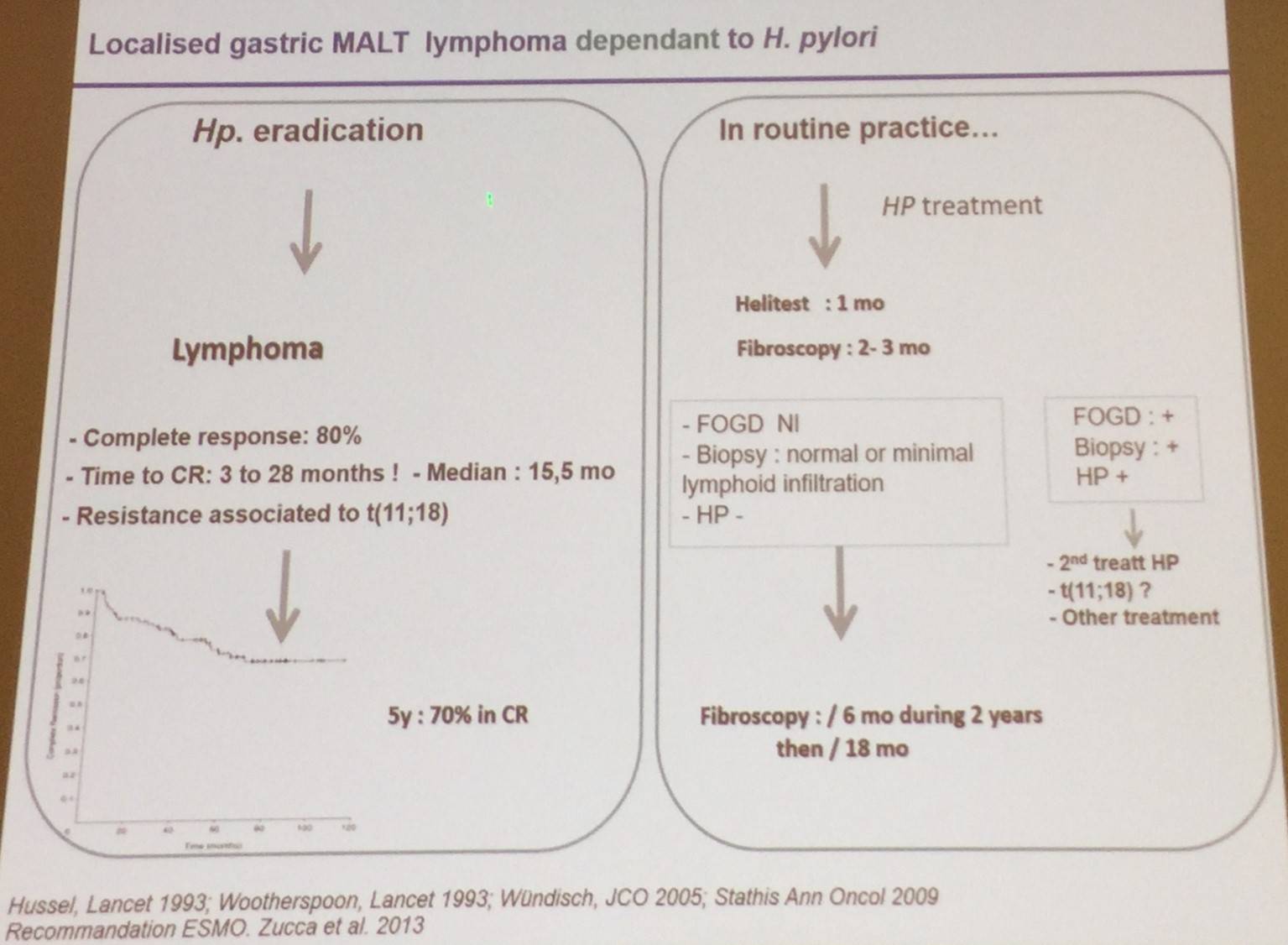
In MALT lymphoma non-dependent to a pathogen, there are multiple therapeutic options with proved efficacy in non-randomized trials. Treatment options for stage I–IV disease include R-alkylants. Radiation can also be used to treat stage I and II disease; it has been reported to achieve a 100% CR at 2 years. Catherine Thieblemont also discussed results with chemotherapeutic options, with or without rituximab:
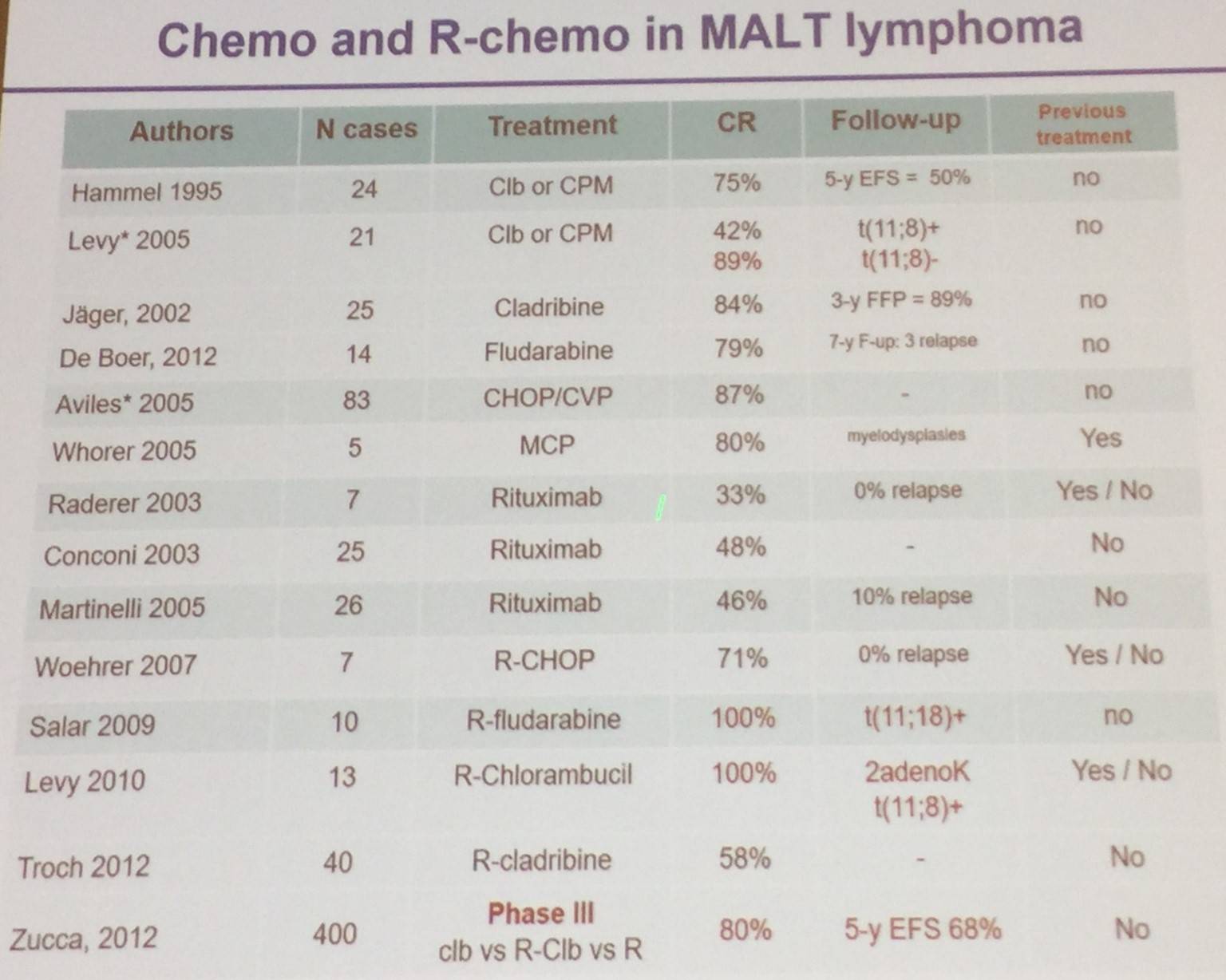
Updated results of the IELSG-19 randomized study were then presented:
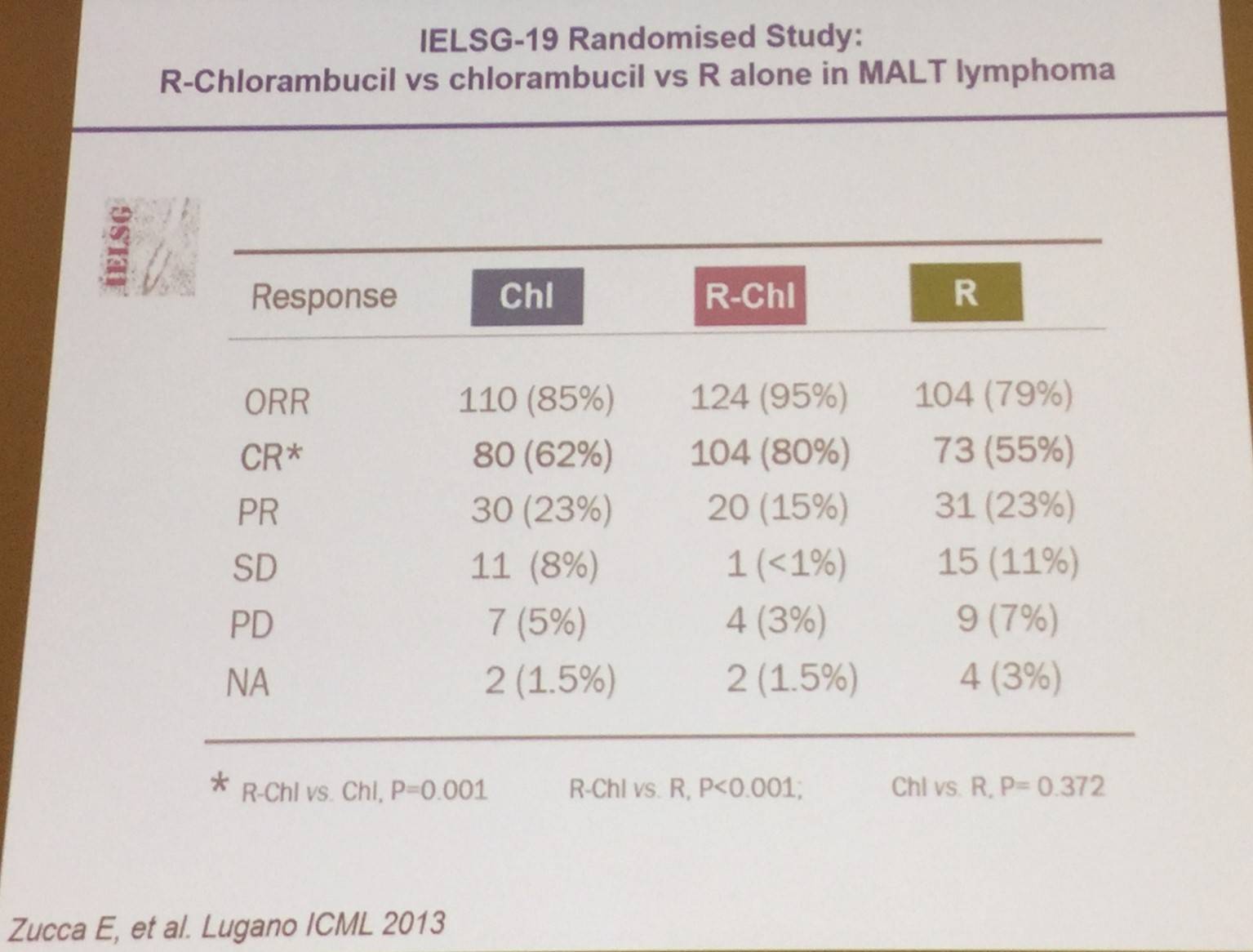
Results achieved with R-bendamustine in the single arm, GELTAMO MALT-2008-01 phase II study of 60 patients with MALT lymphoma were discussed (Salar et al. 2014. Lancet Haematol).
- Evaluable patients = 57
- After three cycles of therapy, CRR = 75%
- Only 14 (25%) patients needed >4 cycles of treatment
- After 6 cycles of treatment, ORR = 100%; CR = 95%
- Median follow-up = 43 months (IQR, 37–51)
- Median EFS = not reached; 2-yr EFS = 93% (95% CI, 84–97); 4-yr EFS = 88% (95% CI, 74–95)
- The most common grade 3–4 AEs: lymphopenia (n=20, 33%), neutropenia (n=12, 20%), and leucopenia (n=3, 5%)
- Grade 3–4 febrile neutropenia or infections observed in three (5%) and four (7%) patients, respectively
The talk finished with an overview of new agents in the treatment of MZL:
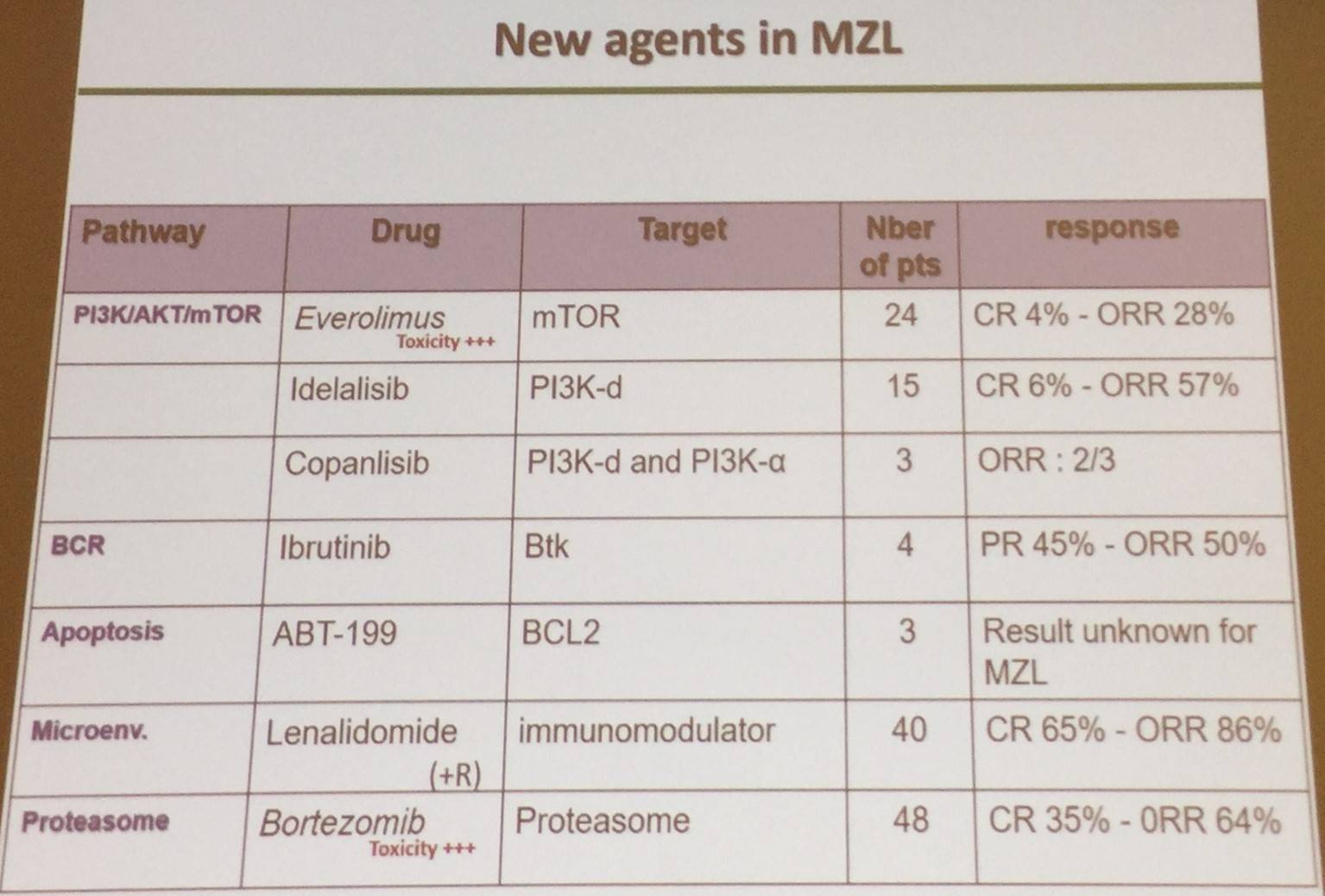
References
Your opinion matters
In your experience, when do most CRS/ICANS events occur after lisocabtagene maraleucel infusion?

